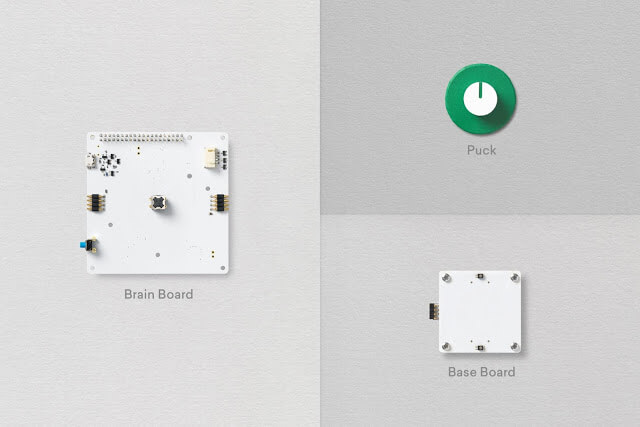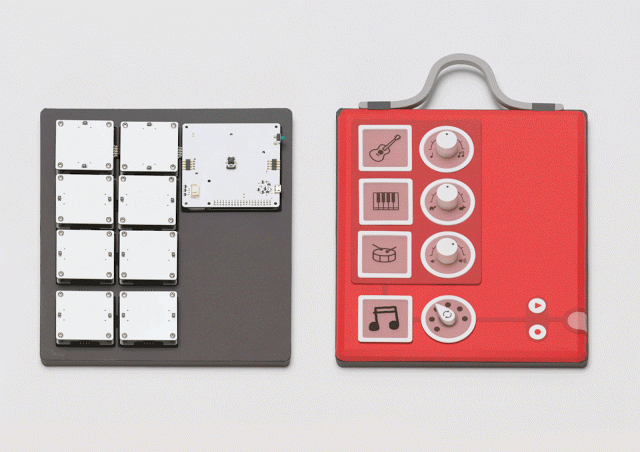Google has announced a new initiative called Project Bloks to teach kids the principles of coding, but with actual toys they can interact with in the physical world. The project is billed as an open hardware platform comprising three core components the "Brain Board", "Base Boards" and "Pucks", which when connected together create a set of instructions that can be sent to connected devices, things like toys or tablets, over wifi or Bluetooth.

The Brain Board houses the main processing unit and is built on top of a Raspberry Pi Zero, controlling and providing power to the rest of the connected units. The Base Boards act as a conduit for a Puck's command to the Brain Board, they are modular and can be connected in sequence and in different orientations to create different programming flows and experiences. And lastly, the Pucks come in the form of dials, switches, arrows, buttons and more, which can be programmed with different instructions, such as 'turn on or off', 'move left' or 'jump'. Pucks also have no active electronic components and are therefore very inexpensive to make.

Google says with Bloks kids are not just learning how to program a computer – they're learning a new language for creative expression and are developing computational thinking: a skillset for solving problems of all kinds.
The company doesn't plan to build toys itself but rather create the platform upon which other companies can build kids' toys on top of. The project is still in development with no launch date shared at the moment. You can read more about it here.